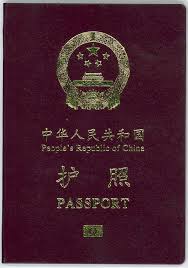The Chinese government has created a new restriction on Tibetans residing in the Tibetan Autonomous Region (TAR). They have imposed a new two-track system of passport application that defies international law as well as breaching individual freedom of movement.
The issue has been documented in a recently published report by Human Rights Watch, a leading rights group, entitled One Passport, Two Systems: China’s Restrictions on Foreign Travel by Tibetans and Others. According to the group, the two-tiered system was designed to prevent Tibetan Buddhists from religious study or attending speeches by the Dalai Lama, and Uyghurs and Hui Muslims from undertaking pilgrimages to Mecca.
Chinese officials, however, deny that there is a ban on TAR residents’ access to passports, and assert that the process is simply slower because it is more complex. However, the slow-tracked system not only requires residents of the TAR, Xinjiang Uighur Autonomous Region and other minority areas to provide far more extensive documentation than other citizens, but has led to extremely long delays, often lasting years, with passports routinely denied for no valid reason.
Sophie Richardson, China director at Human Rights Watch, suggests that it is “virtually impossible” for people from minorities groups to obtain a passport. “Chinese authorities seem to believe that systematically denying Tibetans’ rights to travel brings greater stability to the TAR. They should move swiftly to dismantle this blatantly discriminatory passport system. The restrictions also violate freedom of belief by denying or limiting religious minorities’ ability to participate in pilgrimages outside China,” said Ms Richardson.
People living in areas that are largely populated by the country’s ethnic Chinese majority have access to a fast-track system,with a passport available within 15 days of a fresh application and requiring approval from only one office under the Ministry of Public Security. Those in most ethnic and religious minority areasmust apply through the slow-track system.
This is not the first time that the communist regime in Beijing has restricted Tibetans and other ethnic minorities from obtaining passports. In 2012 the government recalled all ordinary passports in the TAR in advance of China’s nationwide rollout of the “ePassport”. This demand that “all still-valid ordinary passports in our region shall be withdrawn without exception” was never made public and only communicated orally through visits by local officials to individual passport-holders. The authorities then refused to issue replacements, and only travellers on official business, together with a small number of others appear to have been successful. According to the figures on the TAR government’s main internet portal, only two passports were issued in 2012.
The situation is summed up in the words of a Tibetan blogger on a Chinese-language website in 2012, who said “Getting a passport is harder for a Tibetan than getting into heaven”.





 Print
Print Email
Email